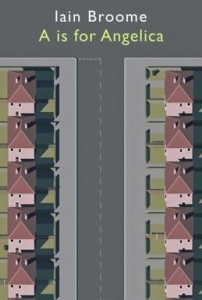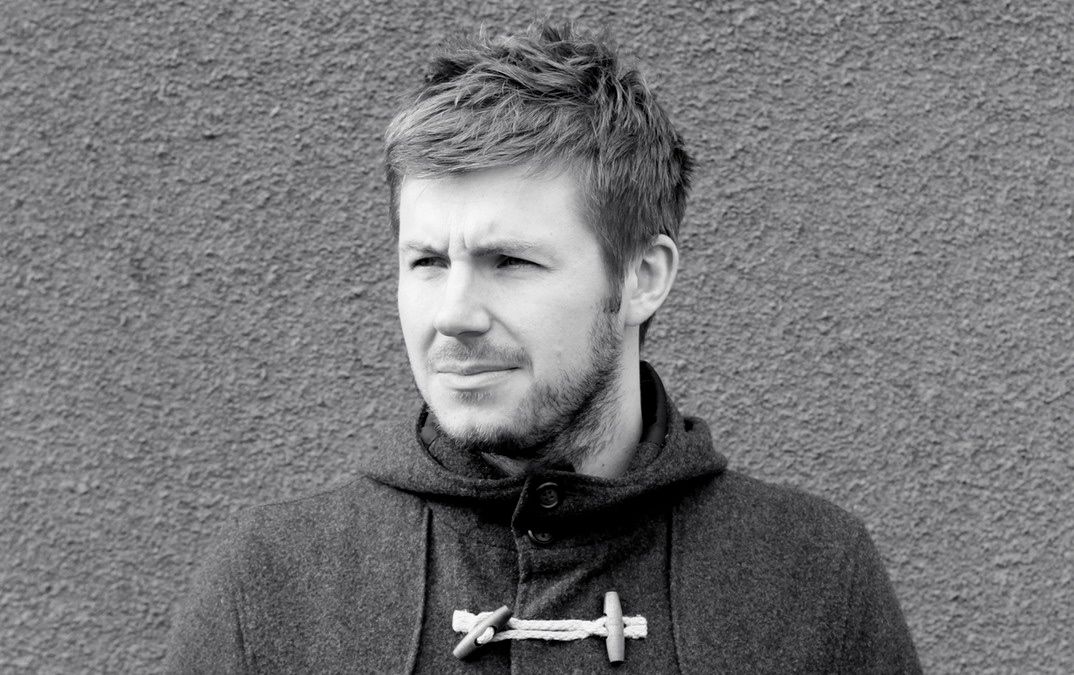I should probably start with a disclaimer.
I’m a dad to two-year old identical twin boys and that has completely changed the way I write. And many other things too, of course.
Balancing Fatherhood with Writing
Before they came along, I’d have probably said backache or a little RSI [repetitive stress injury], but without doubt my answer now is sleep. Or the lack of it. And not only am I far more tired than I used to be, I’m no longer physically able to write late at night, which is the time of day I’ve always written my best and most productive work.
I wrote much of my first novel, A is for Angelica, between the hours of 9:00 p.m. and 1:00 a.m. I’ve always needed a separate full-time job, so although not ideal, this time period was both a necessity and actually quite fruitful.
Now? I can barely concentrate on anything past 11:00 p.m. My body wants to rest.
Writers Should Try a Trackpad
I’ve started drinking coffee! Although I think that’s perhaps a coincidence.
Thankfully, I don’t get many aches and pains from writing all day (I’m a freelance copywriter as well as an author). However, when I’m editing my work, quite often I need to scroll pages a lot and that has previously led to a sore wrist and, bizarrely, achy knuckles.
I use an iMac at home, so I decided to switch from using a mouse to a Magic Trackpad. Swiping, pinching and tapping seems to have stopped these problems occurring, probably because they require a range of movement instead of the same gesture over and over.
The Emotional Drain of Finishing a Writing Project
I’ve never had a problem with rejection, as it’s part and parcel of being an author. If you’ve got yourself into a position where your work is complete and in front an agent or publisher, then you should be very proud of getting so far, whatever happens.
That getting there is the biggest emotional drain. It’s so easy to start a creative project of any kind, but it is another thing entirely to stay motivated to the end. And that has nothing to do with how good or bad the work is (good and bad being arbitrary and subjective concepts in themselves). It’s about being prepared to sit down and do the work. Day after day. Night after night.
Emotionally, you need to be very determined to keep focused on the finishing line. But it really is the only way.
Set Yourself Short-Term Targets
When I was writing A is for Angelica, I tried to remind myself that I was attempting to do something that I had always wanted to do—that I was in the process of trying to fulfill a dream and no matter how difficult is was, I had to keep going.
On a more practical level, I tend to practice a technique that I call chunking, where I write intensely for a short period of time, say 25 minutes, then have a five minute break before going again. It’s similar to the Pomodoro technique, which I discovered later.
Essentially, I think the more you can focus on the long-term goal, but set yourself much more short-term targets, the better your chance of succeeding. Something like a novel is so huge, you need to have lots of mini milestones that keep you motivated.
Sometimes, Writers Need to be at Peace with Real Life
I think having to get used to being a new parent to twins at the same time as being a newly published author has been very challenging. It’s been difficult to gain any momentum with both promoting the first book and writing the second.
But of course, I wouldn’t change it for the world. This is just real life and sometimes, as a writer, it’s important to acknowledge and be at peace with that.
The One Thing That Has Kept You On Your Path
I don’t think there is one thing and I don’t even know if I can be sure what my path is. Does anyone, really? Almost every path has at least one fork in it and we might set out for one destination and find ourselves somewhere else entirely.
I have always tried to stay confident. Even when the writing has been tough or I’ve not been able to get behind my desk as much as I would like, I’ve made an effort to be objective about where I am with things. We writers beat ourselves up so much, when the truth is that a) we are human, and b) writing anything over a long period of time is really, really tough.
So try and stay confident. It’s not easy, but if you can step away from how you feel at any one time and look at the bigger picture, you can see that however you’re feeling is temporary. Your basic tools don’t go anywhere. It’s just going to be difficult to use them for a while.
Advice for a Young Writer: Be Willing to Sacrifice
Well, I was a young person when I began to take my writing seriously and I can say with certainty that the most difficult thing for a young writer is sacrifice.
Writing a novel or something else of substance takes a long, long time and many hours in front of a screen. The only way to do that, assuming you also have a job or other work to attend to, is to make sacrifices. That might include seeing less of friends or giving up other projects that you enjoy.
Something always takes a hit and managing those sacrifices, especially for a young person who has so many things they could do instead, is incredibly hard. My advice is to think hard, choose wisely and remember that these decisions are rarely forever.
* * *
Iain Broome is the author of the novel, A is for Angelica. He grew up in a small town in Derbyshire and lives in Sheffield with his wife and identical twin boys. A graduate of Sheffield Hallam’s MA Writing program, Iain has edited literary magazines, co-run a successful monthly spoken word event, and currently maintains a popular website and podcast about writing, reading and publishing. By day, he is a freelance copywriter and content producer.
 A is for Angelica: Gordon Kingdom struggles with the fate of his seriously-ill wife while patiently observing and methodically recording the lives of those around him: his neighbours. He has files on them all. And then there’s Angelica, the new girl on the street, with her multicoloured toenails and her filthy temper. It’s when she arrives that Gordon’s world of half-truths really begins to unravel. Faced with a series of unexpected events and a faltering conscience, he’s left with an impossible decision. Because in the banality of everyday life, what would you do if the unthinkable happened? Available on Amazon, and Amazon UK. View the book trailer here.
A is for Angelica: Gordon Kingdom struggles with the fate of his seriously-ill wife while patiently observing and methodically recording the lives of those around him: his neighbours. He has files on them all. And then there’s Angelica, the new girl on the street, with her multicoloured toenails and her filthy temper. It’s when she arrives that Gordon’s world of half-truths really begins to unravel. Faced with a series of unexpected events and a faltering conscience, he’s left with an impossible decision. Because in the banality of everyday life, what would you do if the unthinkable happened? Available on Amazon, and Amazon UK. View the book trailer here.
Iain’s website, or connect with him on Twitter. Check out his writing tips on his podcast, Write for Your Life.


I admire your tenacity! And I agree with what you said about sacrifice. A writing coach once asked a class of wanna-be writers (myself included) who had a hard time fitting writing into our schedules to notice how much TV we watched. D’oh! He was right- it’s a matter of prioritizing. Like they say, we all have the same 24 hours in every day.